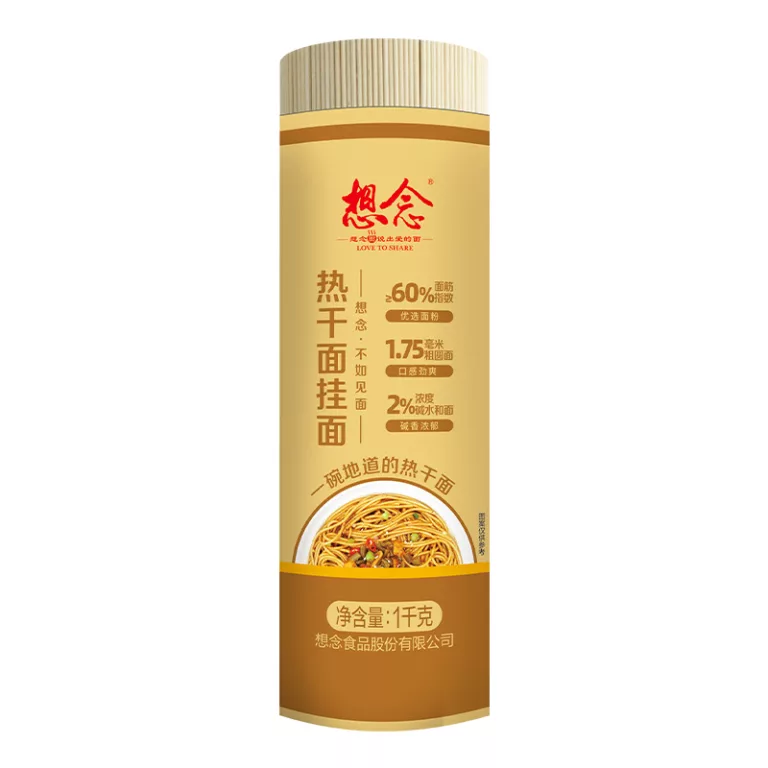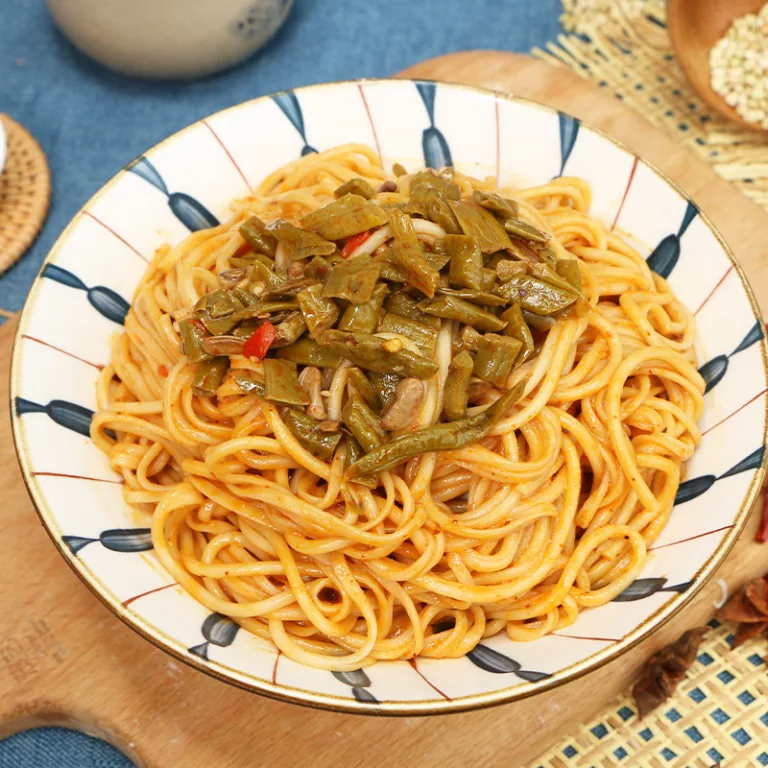Does eating noodles for a long time affect the body?
-
zeyuan li
- February 6, 2023
It all depends on how much and how often you consume noodles. Generally speaking, noodles can be good for your health and provide many essential nutrients. But if you eat them too often and in large amounts, it could have a negative impact on your health.
Noodles have been part of various cuisines for centuries; however, in modern times with their convenience and by the marketing of various brands of instant noodles, their popularity has grown especially amongst young people who consume them regularly.
Noodles are usually made from wheat flour and contain protein, complex carbohydrates, fiber, iron, and B vitamins. They are also relatively low in fat; however, depending on the type of noodle and how it is prepared, they can contain high levels of sodium, sugar, and saturated fat.
In this blog, we will look at the effects of eating noodles for a long time on the body. We will discuss the nutrients found in noodles, the potential health benefits, and the potential risks when eating them over an extended period.
Nutrients in Noodles
Noodles are generally made using wheat flour or eggs. The most popular variety of noodles is spaghetti. These are made with durum wheat, a type of semolina flour. When making noodles, other ingredients such as seasoning and vegetable oil may be added to add flavor and texture.
Nutrition-wise, noodles provide several important nutrients. They are a source of protein, complex carbohydrates, and B vitamins, which are essential for good health. They also provide small amounts of iron, calcium, and other essential minerals.
The nutrition facts for cooked noodles vary depending on what type of noodle it is and how it is cooked. However, one cup of cooked spaghetti contains approximately 200 calories, 35 grams of carbohydrates (7 of which are fiber), 7 grams of protein, 2 grams of fat, and 44 mcg of folate.
Health Benefits of Eating Noodles
Eating noodles can provide several potential health benefits. The protein and complex carbohydrates in noodles can help to provide sustained energy throughout the day. The B vitamins and iron also help to support healthy skin, eyes, and bones. The high fiber content of noodles also helps to keep the digestive system functioning properly, as well as aiding in weight loss. Additionally, the folate content helps to form red blood cells essential for maintaining energy levels.
However, it is important to note that many packed and canned noodles contain added salt and sugar for the convenience of the consumer. Therefore, fresh home-made noodles are considered to be the healthiest option, as they are made without the added chemicals.
Caveats of Eating Noodles for Too Long
While noodles can be part of a balanced diet, consuming them too often or in large amounts can be detrimental to your health. Eating too many noodles can cause you to consume excessive amounts of calories, carbohydrates, and sodium. If you are eating noodles as part of your regular diet, it is important to limit the amount you consume and monitor the nutrition facts to make sure you are getting the nutrients you need.
Consuming too much sodium can lead to a range of health problems, such as high blood pressure, which can put extra strain on your heart and your blood vessels. Sodium can also cause dehydration and can disrupt the delicate balance of minerals in your body, leading to an electrolyte imbalance.
In addition, eating noodles for a long time can lead to weight gain due to the high calorie content. This is especially true for instant noodles, which are low in fiber, making them digest more quickly and leaving you with an craving for more.
Finally, eating too many noodles can put you at risk for vitamin and mineral deficiencies since noodles typically only provide a few essential vitamins and minerals. Those at risk include women who are pregnant or breastfeeding, kids, vegans, and older adults.
Conclusion
In conclusion, eating noodles can provide several essential nutrients and potential health benefits to your diet. However, eating them too often or in large amounts can be detrimental to your health. Eating too much sodium, calories, and carbohydrates can lead to health problems such as weight gain, electrolyte imbalance, and high blood pressure. Therefore, it is important to practice moderation when eating noodles and make sure to get other essential vitamins and minerals from other sources in your diet.








